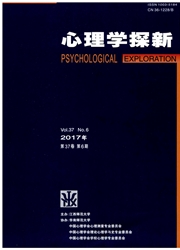

 中文摘要:
中文摘要:
传统的认知理论认为,主体通过跨通道的抽象符号对客体进行概念表征。语言和情境仿真理论(Language and Situated Simulation)则认为,概念知识包括存在于大脑语言系统的语言表征和存在于大脑多通道系统的情境仿真表征。概念加工则包括语言加工机制与情境仿真加工机制。研究证明,在概念加工中,语言加工机制会最早启动,仿真加工机制会后续启动;语言加工机制表征了浅层的概念知识,而仿真机制则表征了深层的概念知识。今后的研究应关注对非语言刺激的概念加工,并探索复杂概念加工任务中两种机制的交互作用。
 英文摘要:
英文摘要:
Most traditional cognition theories assume that a modal symbols represent conceptual knowledge in memory. Language and Situated Simulation(LASS) theory supposes that conceptual knowledge include linguistic representations in the brain's language sys- tems, and situated simulations in the brain' s muhimodal systems, and conceptual processing relies heavily on both language processing and simulation processing. Increasing empirical evidence suggests that activation in the linguistic system peaks first and simulation sys- tem peaks later. The linguistic strategies represent superficial conceptual information, and the simulations represent deep conceptual in- formation. Future researches should focus on conceptual processing of nonlinguistic stimuli and the interaction in complex conceptual processing.
 同期刊论文项目
同期刊论文项目
 同项目期刊论文
同项目期刊论文
 期刊信息
期刊信息
